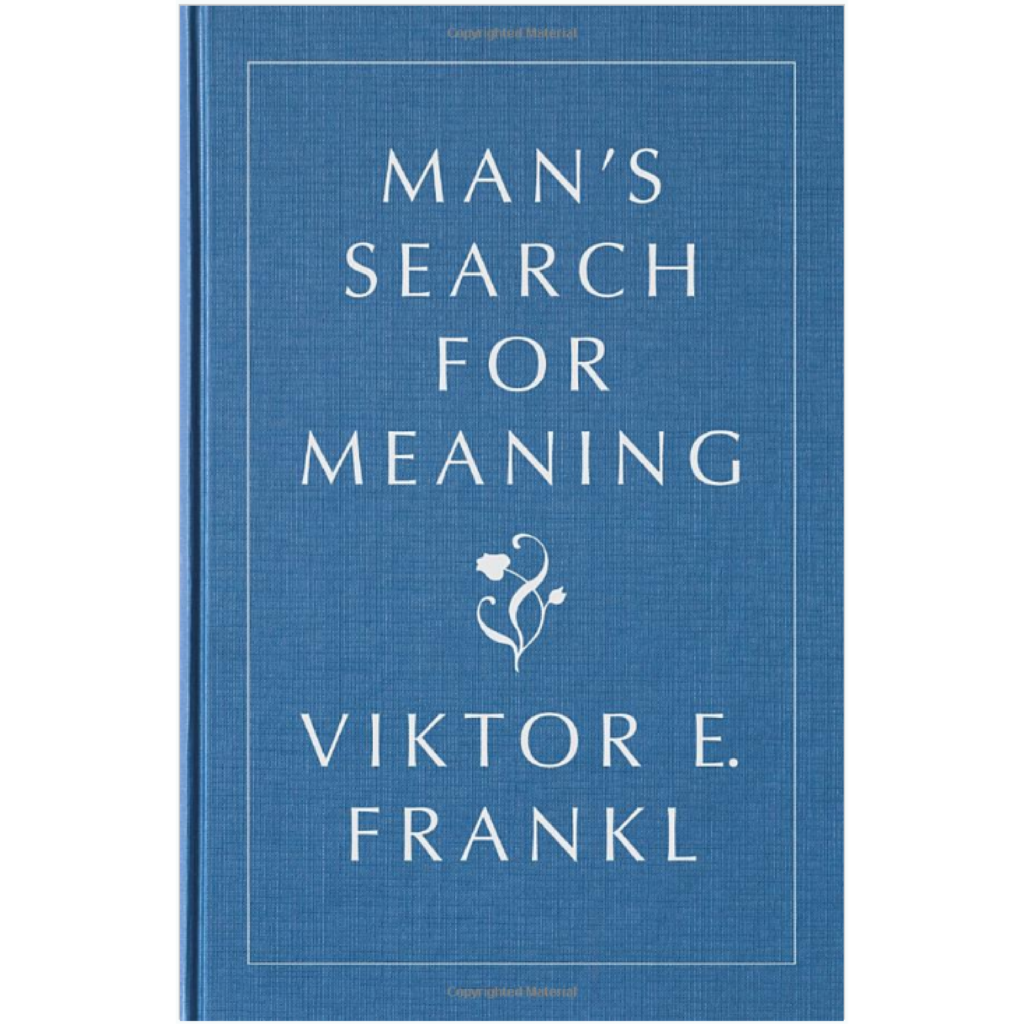Over the past year, I’ve become well acquainted with officiating a funeral. Since November of 2021, I’ve ministered at 6 different funerals and attended and spoken at several others. So it’s no coincidence I’ve thought a lot about pain, suffering and heartache over the last year. I’ve asked myself as I prepare for these services, “Can a person find purpose and meaning in their suffering?” A helpful tool for me was a book I’ve long meant to read.
Man’s Search for Meaning
In his book, Man’s Search for Meaning, Victor Frankl shared his experience as both a Nazi concentration camp survivor and psychoanalyst. A contemporary of Sigmund Freud, Victor Frankl differed in his approach to what drives a person. Frankl explores life – both the good and bad – through the construct of a theory he developed called Logotherapy. Freud believed to unlock human potential it was necessary to look into a person’s past. Frankl believed man’s meaning is found in his future.
The basics of Logotherapy
Frankl had already started to develop his theory, but his own experience and observing those around him in the confines of a brutal prison camp solidified his thinking. He found those who survived the harsh settings of the Nazi camps were those continued looking toward the future. Frankl further developed his theory to note three things through which every person derives meaning:
- We find meaning in our work or accomplishments.
- We find meaning in love.
- We find meaning in suffering.
It’s natural to find value in what we achieve. Whether it be business, education, sports, raising a child, or to a lesser degree, winning a card game or cleaning our bathroom, we find purpose.
It is easy to understand finding meaning in a loving relationship – romantic, platonic or familial. When I am truly loved by my wife, I find worth as her friend, lover and confidante. I find meaning when I care for, play with, or snuggle my children. There is deep satisfaction when I connect with a life long friend over coffee.
Choice: Meaning in Pain
But is it truly possible to find meaning in pain, heartache, suffering…even death?
In short, yes!
From both Frankl’s perspective and a Christian worldview, the power to find meaning in the worst of times comes from the freedom of choice. Even locked in a dark cell, unable to make the most basic of choices for yourself – when to eat or sleep, who to speak to or what to say – you are free to choose your attitude and beliefs about life.
Last year, I officiated a funeral for a 61 year old man. He suffered for over 5 years with dementia and eventually full-blown Alzheimer’s. The man suffered. His family suffered. Life wasn’t easy for anyone involved. But each and every person – the man, his family, his friends – were able to make a choice on what their individual suffering would mean.
No one could not control the disease, but they could control their perspective. They could control their attitude, and they could choose to see the suffering as a reason to grow, improve, learn and even love.
We all suffer.
Each of us suffer. It could be:
- Low Self-Image
- Broken Relationships
- Financial Hardship
- Addiction
- Mental illness
- Trauma
It could be any of those or anything among a host of problems we face in life. If it’s not you fighting one of these afflictions, then it’s you walking with a loved one who is. We each have a choice in how we view the pain life offers us.
Suffering in Scripture
As far as I can tell, Victor Frankl was not a Christian, but his theory aligns with the Christian perspective. In fact, finding meaning in tragedy and suffering is a common theme in Scripture. Here are a few examples of those finding meaning in suffering:
- JOB: Job lost everything he had – wealth, health, home, family. The entire book of Job – 40+ chapters – is a record of Job arguing back and forth with his friends, and even God, on both the purpose behind suffering and how to find meaning in it. The book ends with God giving perspective on the meaning of pain.
- RUTH: Ruth lost both her husband and her means of survival. In her suffering, Ruth found God had a new identity and much greater purpose for her life beyond just surviving the next day.
- PAUL: The Apostle Paul suffered beating, imprisonment and expulsion from his community for sharing the good news of Jesus. Through his suffering, he found hope for those who heard and accepted this message of grace. But Paul also found hope in what was still to come.
Finding Meaning in Pain + Death
Paul had this to say about finding purpose in pain, suffering, and even death:
'For our present troubles are small and won’t last very long. Yet they produce for us a glory that vastly outweighs them and will last forever! So we don’t look at the troubles we can see now; rather, we fix our gaze on things that cannot be seen. For the things we see now will soon be gone, but the things we cannot see will last forever.' -2 Corinthians 4:17-18
The hard truth about the pain and suffering we face today may not lead to redemption in this lifetime. Our hope is in the eternal…what we cannot see. We find meaning by looking to the future.
In the song, Fear is not My Future, gospel great, Kirk Franklin says,
“The biggest fear is that the resurrection was not complete The biggest lie is that this life is all that there is And so we live in a fear of not knowing that God's work is complete in us And the problem with not having confidence in the resurrection Is that we don't know in the end if we will live again But I want you to know that the pain you face is temporary The cancer you face is temporary The disease you face is just temporary Because every believer that's washed in the blood of the Lamb Will live to live again”
This is the theory presented by Victor Frankl, but it was stated hundreds of years earlier by Paul, and again today by people like Kirk Franklin. Our hope doesn’t lie in this life. Our hope is found in Jesus – his life, death and resurrection which gives us hope for eternal life.
Oddly, this perspective, that our hope lies in another reality, gives us purpose and meaning in this life. When I come to peace with this truth, it allows me to project and give others this same peace and hope. This what happened at the funeral I officiated. I was able to share that his death was a blessing – a release from this life to the next. I was also able to release his loved ones from the suffering and the responsibility they felt toward him.
Will you find meaning in your pain?
There is no doubt in my mind you are either enduring pain and suffering today…or you will tomorrow. You are either walking through pain today, or your loved one is, and this is suffering for you too. There is meaning in your pain. It is either leading you toward something greater in this life, or it is giving you a greater hope for the life to come.
The best news in all of this is you have choice in how you view your pain. You CAN find meaning in your suffering. It is your choice. Will you find meaning in your pain?





Leave a Reply